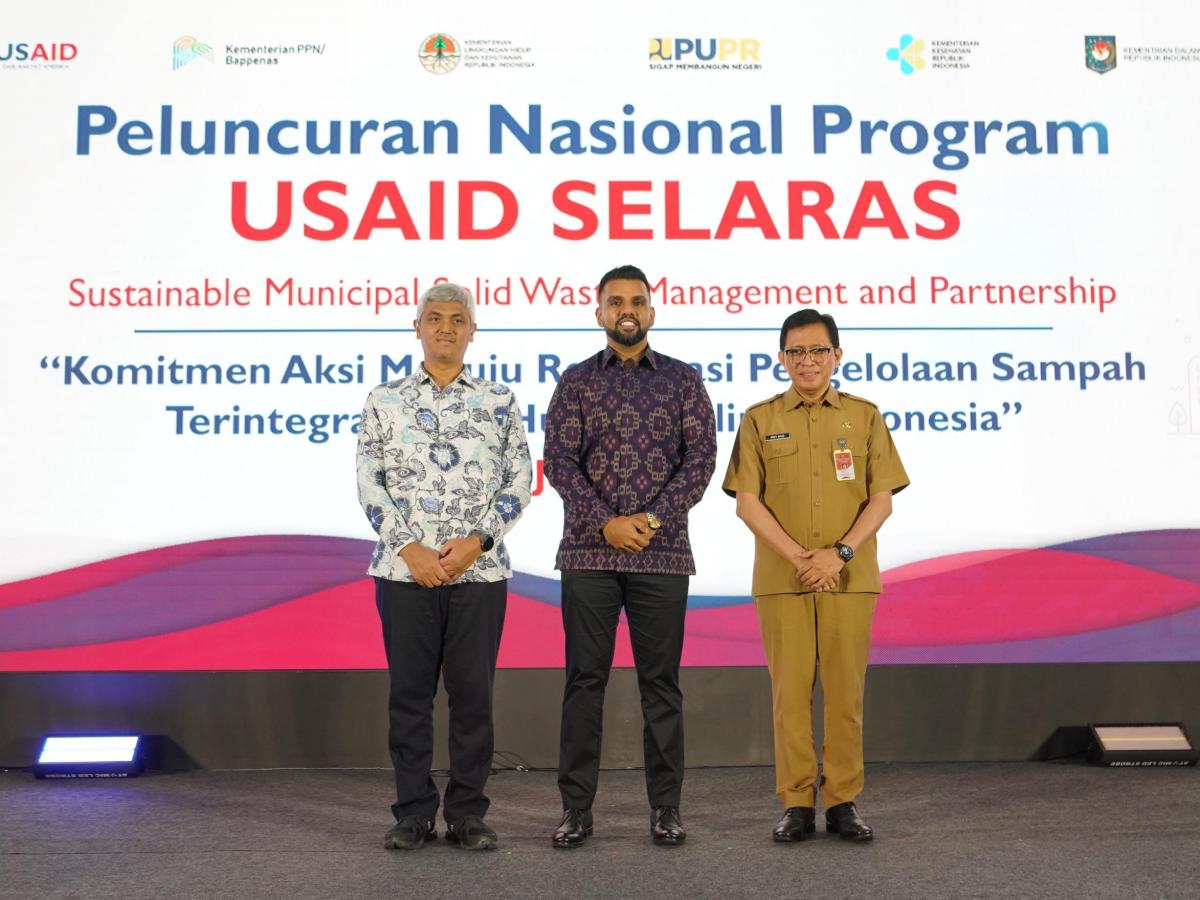For Immediate Release
Press Release
Today, the United States Agency for International Development (USAID) and the Government of Indonesia announced the launch of the Sustainable Municipal Solid Waste Management and Partnership (USAID SELARAS). Both Indonesia and the United States have a vested interest in addressing waste management, which poses significant health and environmental risks, including plastic pollution in the seas and other waterways. Improving solid waste management and increasing the recycling rate will enhance citizens’ quality of life, mitigate environmental damage, and contribute to a sustainable future.
USAID SELARAS is a five-year, up to $24.7 million program designed to reduce land-based sources of ocean plastics pollution and methane—a potent greenhouse gas—by promoting sustainable and integrated solid waste management. The new program will work in 18 cities and districts in North Sumatra, Banten, Central Java, East Java, East Kalimantan, Bali, and South Sulawesi provinces.
During today’s launch event, mayors and regents from the 18 cities and districts signed a commitment to work together to tackle solid waste management challenges in Indonesia. The signing was witnessed by representatives from the Ministry of National Development Planning (Bappenas) and the Ministry of Home Affairs, as well as representatives from other line ministries. The declaration commits the cities and districts to prioritize solid waste management programs and budgets, supporting various improvement targets.
“Reforming solid waste management through an integrated upstream-downstream system is critical not only for the environment but also for the well-being of our communities,” said Mohib Ahmed, Acting Mission Director of USAID Indonesia. “Through this new program, USAID will partner with key institutions and stakeholders to strengthen governance, expand services, enhance plastic waste markets, improve community practices, and reduce methane emissions to achieve a cleaner, greener, and more sustainable Indonesia.”
“Solid waste sector reform falls under the Social, Culture, and Ecology Security development agenda in the National Long Term Development Plan 2025-2045, to also address the importance of upstream solid waste management, not just downstream,” said the Deputy of Infrastructure at Bappenas, Ervan Maksum, in his remarks. “Positive social engineering to promote the behaviors and habits of waste segregation and waste reduction will help Indonesia move towards a circular economy for environmental sustainability.”
“We call on all local governments, local parliaments, local planning agencies and technical offices to work together to set up a good foundation for improved solid waste management in the new local Long Term and Medium Term Development Plan,” said the Director General of Regional Development at the Ministry of Home Affairs, Restuardy Daud. “The Ministry of Home Affairs will continue to collaborate with other technical ministries to establish strategic capacity building efforts for local decision makers in cities and districts.”
Following the launch ceremony, a dialogue session titled “Commitment to Action Towards Integrated Upstream-Downstream Solid Waste Management Reformation in Indonesia” featured insights from Ikhwan Hakim, Director of Housing and Settlement Areas at Bappenas; Ferdi Mochtar, Head of the Environmental Agency of Makassar City; Christine Halim, Chairwoman of the Indonesian Plastic Recycling Association (ADUPI); and Christiana Yuni, Governance and Finance Lead of USAID SELARAS. The session, which was moderated by Alwis Rustam, Executive Director of the Association of the Indonesia Municipalities (APEKSI), highlighted strategies, best practices, challenges, and a way forward in waste management.

